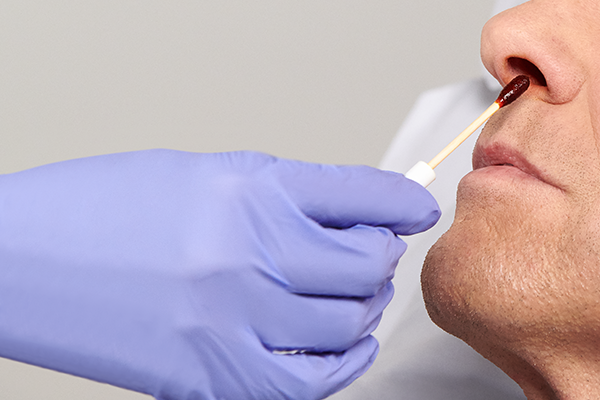Industry Roundtable: Nasal Decolonization

PDI Healthcare’s Joan Hebden MS, RN, CIC, Fapic, President, IPC Consulting Group, LLC, was featured in an Industry Roundtable for Infection Control Today on nasal decolonization.
Industry Roundtable: Nasal Decolonization
Infection Control Today (infectioncontroltoday.com)
Author: Infection Control Today with Expert Commentary from Joan Hebden MS, RN, CIC, Fapic, President, IPC Consulting Group, LLC.
Excerpt:
Decolonization is an evidence-based practice to reduce the incidence of healthcare-associated infections. Nasal decolonization, with or without chlorhexidine gluconate bathing, has become an important strategy for reducing surgical site infections (SSIs) due to S. aureus – the primary pathogen responsible for these infections — and for the control of methicillin-resistant Staphylococcus aureus (MRSA) transmission in healthcare settings with endemic prevalence. The gold standard for nasal decolonization has been mupirocin; however, as seen with widespread use of other antibiotics, selective pressure has led to mupirocin-resistant strains of S. aureus and treatment failures. As part of an overall approach to antibiotic stewardship, investigators have looked to antiseptics as alternatives for nasal decolonization. Povidone-iodine (PVP-I) has more rapid bactericidal activity against S. aureus compared with that of mupirocin and has activity against emerging mupirocin-resistant MRSA strains. The use of PVP-I for nasal decolonization in combination with chlorhexidine bathing has revealed statistically significant reductions in SSIs among patients undergoing orthopedic and spinal surgeries and a 40 percent reduction in MRSA nasal carriage and a 60 percent reduction in any MRSA carriage among nursing home residents. Greater patient satisfaction with PVP-I vs. mupirocin has been reported. 3.4 percent of patients receiving PVP-I reported an unpleasant or very unpleasant experience compared with 38.8 percent of those using mupirocin (P<.0001). There have been no reports of bacterial resistance or increased tolerance associated with PVP-I.
—